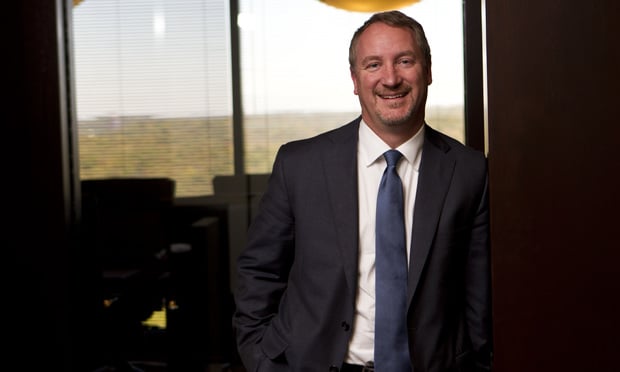Amid an exponential increase nationally in COVID-19 cases, many Atlanta firms that were still operating under a voluntary remote-work policy have escalated this week to mandatory remote operations for all but a few essential personnel. Click here for an updated list.
Fisher & Phillips, for instance, instituted mandatory remote-work for all lawyers and staff on Friday, locking down its Atlanta headquarters for all but a few key employees. On Thursday, the firm instructed attorneys and staff via email to start working remotely or take paid time off as of March 20 “in the interest of your safety and well-being and the public health.”
“Don’t just ‘drop in,’ as that defeats our plan,” the firm emphasized in the email. Those needing anything handled on-site were told to email the service center. The same went for anyone needing items from their office so that someone could collect them and bring them to the person’s car.
Meanwhile, following our earlier reports on firms shifting to mandatory remote operations this week, the Daily Report has learned of additional firms that required staff and lawyers to work from home: Copeland, Stair, Kingma & Lovell; Gray, Rust, St. Amand, Moffett & Brieske; Parker Hudson Rainer & Dobbs; and Parker Poe Adams & Bernstein.
We will continue to update our list of Atlanta firms’ remote-work status. To add your firm, email Meredith Hobbs at [email protected].
Remote Policies Spread
The city’s largest firms, such as Alston & Bird and King & Spalding, instituted mandatory remote-operations for attorneys and staff at the start of last week, with only a handful of top management and a skeleton support staff rotating duties in the office.
But IT obstacles, such as limited bandwidth or lack of laptops, plus productivity concerns have delayed some firms from shifting all staff to mandatory remote status.
Many firms still had staff working on-site last week—albeit with lots of disinfecting, hand-washing and social distancing—and left it up to attorneys and other timekeepers to choose whether to work remotely. Some closed their offices to clients and other visitors, while others allowed a few visitors, but with social-distancing precautions.
One such firm, Nelson Mullins Riley & Scarborough, which has a 160-lawyer Atlanta office, has tightened its policy, effective this week. Starting on March 23, staff are rotating through the office, coming in two days apiece Monday through Thursday, with everyone working remotely on Friday.
Nelson Mullins was “technically open” last week, said Atlanta managing partner Michael Hollingsworth on Friday. “We have not been receiving visitors, and people have been staying in their offices with no conference room meetings,” he said, adding that the firm has been strictly following Centers for Disease Control and Prevention protocols by deep-cleaning the office and with frequent disinfecting and hand-washing.
Last week, any staff who felt uncomfortable about coming to the office for any reason could take paid time off, Hollingsworth said, but on Monday, the office adopted the staggered schedule for non-timekeepers to further promote social distancing.
“We completely understand that the government could mandate differently on a moment’s notice,” Hollingsworth added. “We are taking it week by week.”
As at many firms, Nelson Mullins wants to ensure the remote system can handle the extra user-load, Hollingsworth said, adding that a few people did not have home Wi-Fi.
Gray Rust: Productivity Fine
IT obstacles, such as limited bandwidth or lack of laptops, as well as productivity concerns have delayed some firms from shifting staff to remote status.
That has not been a problem at Gray Rust, which launched mandatory remote-work on March 16. In an email, the firm’s administrator, Laura Bass, explained how the firm has handled common concerns about technology and staff productivity.
Starting last week, all of the litigation defense firm’s 52 lawyers and staff are working from home, except for Bass and her team. The firm’s 21 attorneys were already able to work from home at their discretion, as long as they made their billable hours, Bass said, but that was not the case for staff.
A few weeks ago, the firm started preparing for a potential office shutdown due to the pandemic. The additional bandwidth load was not a major issue, Bass said, because Gray Rust’s technology has been cloud-based for several years, and it has a “robust internet pipeline.” The firm asked everyone to test their technology from home, purchased additional webcams and expanded its usage of video-conferencing app Zoom.
To address productivity, Bass asked each staff member to submit a written plan for efficient telecommuting. Each operations team then met to review the plan, she said, “with a focus on delegating work in a way that would keep all levels of the organization busy.”
Bass said the transition has been easier than expected. “Everyone is working hard and being productive, and we are teleconferencing to stay connected,” she said. Over the first four days of working from home, the firm has not only maintained its billable hours but increased them.
“I am so proud of my people,” Bass said, adding that Gray Rust’s partners “set a great example by being flexible and accepting change.”
NOT FOR REPRINT
© 2024 ALM Global, LLC, All Rights Reserved. Request academic re-use from www.copyright.com. All other uses, submit a request to [email protected]. For more information visit Asset & Logo Licensing.


 Midtown Atlanta towers (from left) King & Spalding, Smith Gambrell and Russell and The Four Seasons, which houses many small boutique law firms. (Photo: John Disney/ALM)
Midtown Atlanta towers (from left) King & Spalding, Smith Gambrell and Russell and The Four Seasons, which houses many small boutique law firms. (Photo: John Disney/ALM)







